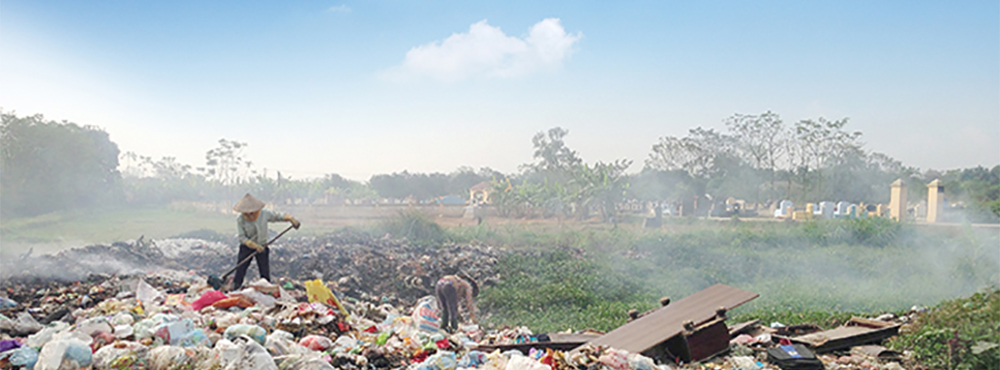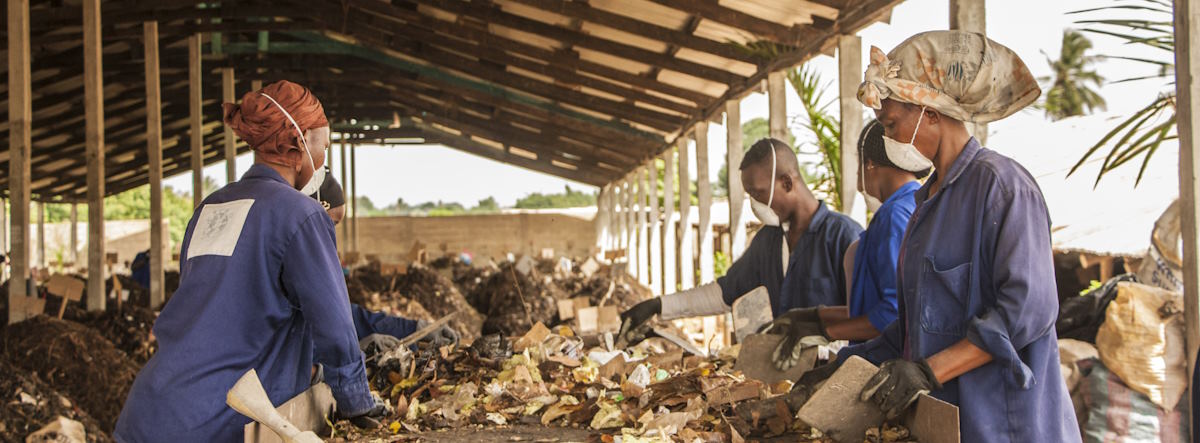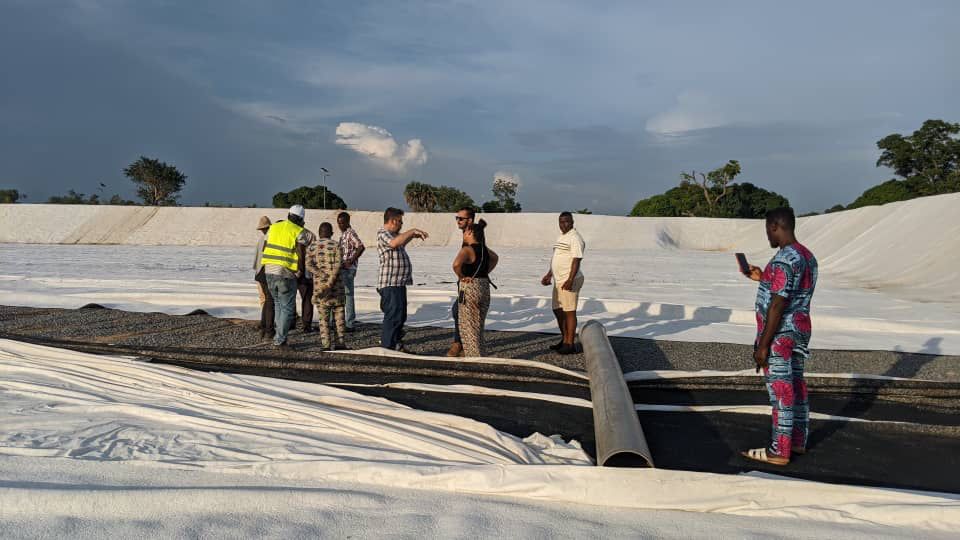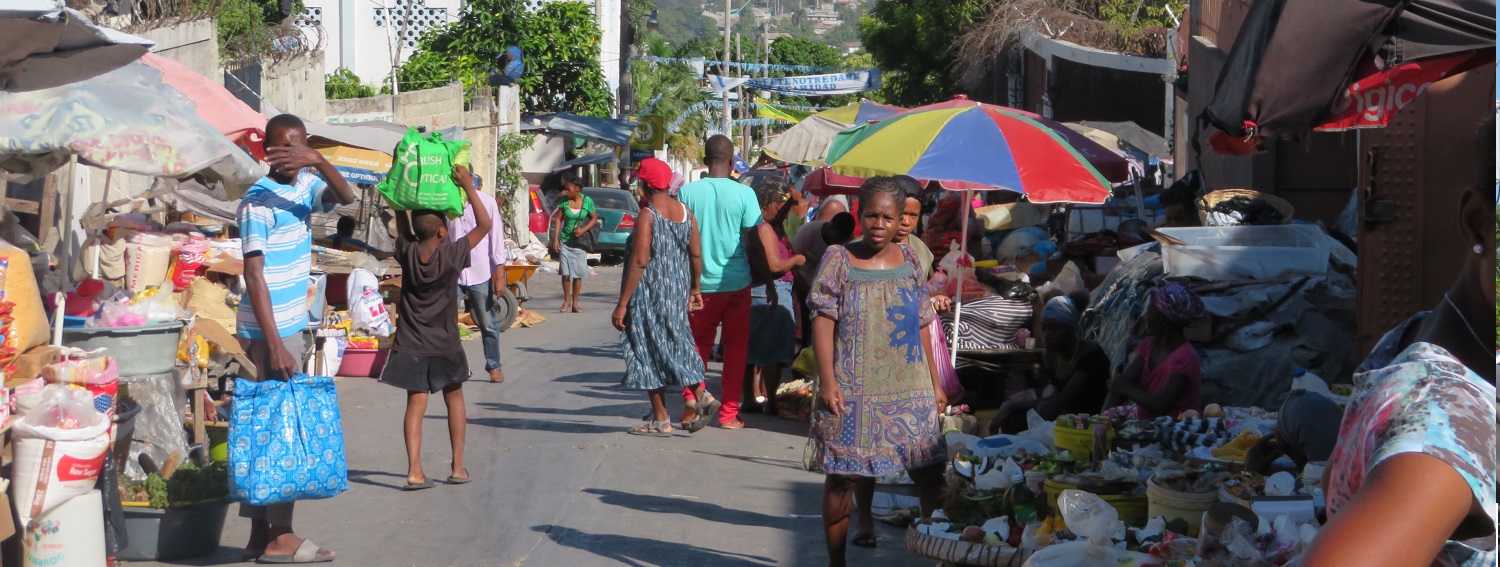Prevention and treatment of waste are key issues for sustainable development: half of the SDGs are directly linked to this issue, which has major impacts on populations’ environment, health and living conditions. With fifteen years of experience, and having integrated NGO Gevalor in 2019, GRET has become the main French NGO working in the solid waste sector internationally.
Proliferation of solid waste is a growing concern: according to the World Bank, if the situation does not change, waste production worldwide will reach 3.4 billion tons in 2050, i.e. an increase of 70 % in just 30 years. In developing countries, this is quite a recent issue, particularly since the 1990s, with changes in consumtion habits generated by the arrival of imported products and single-use plastics. Yet, in low-income countries, more than 90 % of waste is still dumped in the open air or burnt (World Bank). The challenge therefore is to strengthen waste prevention and treatment in areas where services are still poorly organised or inexistant.
A global intervention strategy
For GRET, waste management corresponds to two issues that are directly linked to its social mission: the improvement of inhabitants’ and waste collectors’ living conditions & health, and environmental protection; and limitation of over-use of resources. The NGO accompanies local stakeholders (regional and local authorities, social businesses, informal workers) throughout the waste management chain, from pre-collection to treatment and valorisation of waste (recycling of plastics, composting, energy recovery), through to raising awareness on sorting and reduction at source and the implementation of innovative financial tools such as carbon finance.
In 2020, GRET was working in the waste sector in approximately fifteen countries, with a budget of almost 10 million euros. Studies and projects conducted internationally focus on a variety of actions: from diagnoses, masterplans or action plans for small and medium towns (between 20,000 and 200,000 inhabitants) or capitals (such as Conakry or Port-au-Prince), to the implementation of waste management services in support of local authorities and operators (for example in Dolisie in Congo, Moundou in Chad and Antananarivo in Madagascar). Lastly, the NGO works alongside private waste valorisation and composting operators (Madacompost in Madagascar and Enpro in Togo) and designs actions to raise awareness on waste prevention and reduction (as in Dakar, in support of community-based operations aiming to improve the urban environment).

The NGO also participates in the capitalisation and dissemination of useful practices for local stakeholders, and in mobilisation of regional and local authorities around the issue of waste. In 2020, the NGO coordinated the project for Promotion of waste management actions in the South (Pageds), which made it possible to support the implementation of the waste management scheme by French local authorities, to produce 5 capitalisation documents and 9 technical factsheets (cf. link to documents) and to support the implementation of databases on the Amorce and Re-sources websites.
Inclusion and consultation at the core of GRET’s approach
GRET’s approach to waste management is based on the principles of consultation between stakeholders and shared governance, but it also includes a focus on ensuring the inclusive nature of services, financial sustainability and environmental impacts.
GRET prioritises an inclusive concerted approach, based on strengthening of capacities and shared governance among all stakeholders and at all levels in projects (in reflections, decision-making and satisfaction provided by the service). This approach is included in all positions, whether to support project owners, provide technical assistance to sectoral State structures, support structuring of the waste pre-collection and valorisation segments, empowerment of citizens or taking a position within specialised networks. Support for the municipal contracting authority is also a fundamental principle of GRET’s approach, in order to best empower local authorities in their role and functions, and to ensure sustainability of interventions. GRET is particularly careful not to take the place of the contracting authority, but to accompany it with a view to strengthening stakeholders’ capacities.
Support for private informal pre-collection operators is a major part of GRET’s actions. The Filipa project in Brazzaville is an example of this approach: it enabled pre-collection operators to be officially recognised by the municipality, to obtain authorisation to operate, and to benefit from organisational and material help.
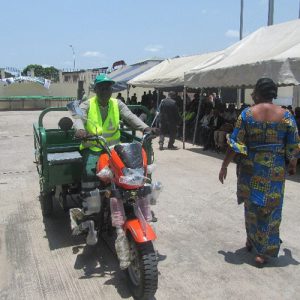
Gender inclusion is also an essential and transversal element in all GRET’s actions. With regards management and limitation of waste, priority targeting of women, who are mainly responsible for waste management and the main users of markets where waste production is often very substantial, makes it possible to strengthen their position as an essential link in the waste management chain, and ensures better dissemination of awareness-raising elements, particularly to the younger members of the population.
In order to ensure sustainability of the service, focus is also given to the overall financial stability of the waste management chain, right from the strategic design of the service, by proposing simple technical procedures, constructing robust and ergonomic infrastructures, optimising the human and material resources to be mobilised, and giving particular focus to local taxation.

Lastly, GRET strives to support environmental management of waste by promoting its valorisation. This approach aims to reduce greenhouse gas emissions by integrating decentralised waste sorting and valorisation activities, and by reducing volumes of waste evacuated to landfills. Awareness-raising plays a central role in changing inhabitants’ and authorities’ behaviour and mindsets, and in ensuring sustainability of services.
Today, GRET wants to continue supporting stakeholders in the Northern and Southern hemispheres to define and implement their projects, in order to respond to the significant social and environmental issues they represent for populations. For more information, please don’t hesitate to contact us:
- Florian Marchadour, waste management project manager: marchadour@GRET.org
- Hélène Bromblet, waste management project manager: bromblet@GRET.org

